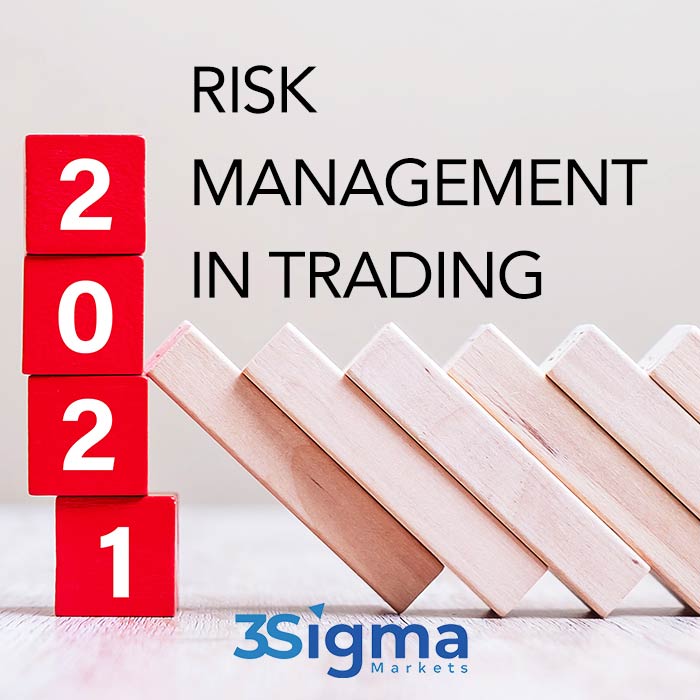
-
Unrealistic Expectations
The first struggle that many new traders face before they event open a trading account is that they are drawn to the promise of unlimited profits and they daydream about “striking it lucky” in their first few trades. What they fail to realise is that trading requires knowledge and experience and it is better to follow some basic risk management principles before hoping and dreaming that they will become overnight millionaires. The industry is full of promises of get rich quick schemes but if traders set their expectations from the beginning they will have a high chance of getting rich slowly instead.
The basic risk management principle is to only risk 1% of the capital in your trading account on any one trade. This means that traders can easily weather a run of bad trades and can adjust the amount they risk lower if needed to regain confidence. But it also means that they give themselves the chance to become profitable overtime and compound their winnings leading to huge profit potential in a few years.
-
Overconfidence
It can be easy to become overconfident after trading a demo account and depositing capital into a trading account. If you are lucky enough to strike into a winning streak in your first batch of traders, this can exacerbate the problem. The problem of overconfidence can impact traders by giving them a false sense of invincibility. This can cause traders to trade too big a position size or trade without a stop loss. Sometimes this can lead to traders jumping into traders without conducting proper market analysis. Inexperienced traders have to realise that losing is part of the process and that not all traders will be winners. After a streak of wins or even someone who has simply not yet experienced a losing streak, traders can be tempted to take on too much risk and abandon their trading plan.
Forming a trading plan and sticking to it are two of the best ways to avoid taking un-planned trades. Of course if a trader is able to follow their plan they have a better chance of becoming consistently profitable in their careers. Sticking to the plan is key to avoiding the pitfalls of emotional trading.
-
Overstimulated
The markets can be overwhelming with new traders having to learn a whole new language and understand a huge volume of data which is available to them. The markets can feel like a confusing and overwhelming environment. The environment can create an urge for new traders to jump into the markets blindly. What is important is that traders slow down and get familiar with the platform, the markets and the terminology before placing a trade. This can limit emotional trading and allow the trader time to trade with a clear head until they develop the experience needed to trade properly. The range of indicators that traders can place on a chart can even cause great confusion and present a lot of false signals.
-
Reacting to trading stress
Trading causes a stress response in traders akin to the flight or fight response we get when we are surprised or frightened. This can lead traders to question why they are in the trade, fear that the profit they have will slip away if the market u turns or cause then to hope that the losses they are accumulating will trade back to breakeven. Traders can even try to fight the market and add to losing positions in order to gain back their losses.
The problem with stress is that it causes us to act in the most natural way possible and preserve our lives. But when it is triggered in a trade it invariably leads to an early exit or a loss. There is no stress in a trader when they are analysing a chart and the logical brain is allowed to focus on the problem of picking an entry, a target and a stop. However once in a trade, the stress emerges and the body reacts and the trader abandons the plan to appease their emotions. Traders will need to gain experience in dealing with this stress in order to have a successful and long career.
-
Boredom
Traders can often find themselves sitting in front of a screen, staring at charts for long hours without the market giving them an entry signal. This can lead to the trader becoming bored and if that emotion is not controlled, it can lead to the trader placing a trade just to be entertained. The first problem with this is that the trader is abandoning the trading plan. This is essentially a lack of discipline and once discipline is broken and the rules are bent a break quickly follows. This can lead to trader regularly breaking the rules and deviating from the trading plan.
The trader then starts to develop bad habits like entering on emotions, not setting a stop and adding to winners. This leads to the inevitability of loss and accounts being blown. Traders should instead use quieter times to continue their education and research, as well as exploring new market themes.
-
Being Underfunded
Traders can open an account with very little capital these days. The problem with not having enough capital is that traders have to limit the size of their positions after accounting for risk and margin. They may be tempted to risk more than 1% of their account balance on a trade or may not have a choice if they are trading a market with a higher margin requirement. Not having enough capital can also mean that the trader cannot withstand a prolonged drawdown scenario or losing streak.
Traders may also be forced to use a smaller stop size than is safe to avoid being stopped out in a noisy market. The problem of being overleveraged can also lead to a trader risking too much on one or a small number of trades and this can quickly bow up the traders account.
-
Following other traders
There is a part of the industry that has given new traders the ability to copy the trades of so-called “gurus”. The problem with this is that the trader becomes dependent on the signals from others, without learning any of the skills needed to be successful in their own right in the markets. Even if the “guru” is honest and tries their best for their clients, there may come a day when the guru falls out of touch with the market or simply decides to take a break from trading, leaving their clients without new signals to trade with. This dependant relationship fails the client trader and leaves them unable to develop the skills and gains the experience to trade.
There is also a more subversive element in the market that is looking to sell the novice trader a get rich quick scheme and take their money with little return. The way to avoid this is to take some time to learn the market and find a solid education in how to the markets properly. This leads to the development of skills and experience that will stand to the trader in the long run.
-
Not documenting your trades
Traders can be tempted to trade on the cuff and not plan or even document their trades. The issue with this is that it makes it harder for the trader to find the bad practices that creep into their trading. Many traders keep a journal so that they can track their progress through their careers, using it to learn from their mistakes and to grow their positive performances into a profitable and executable trading plan.
A trading journal is an essential asset to every trader. It can be inspirational when the trader hits a rough patch to look back at their winning trades and focus on the fact that this too will pass. The journal can also be used to reinforce good habits and it can be used to document trials of new trading systems. The journal allows the traders to write down the current market conditions and use their past experiences to put together a trading plan to trade the new market environment with success.
-
Multi-tasking – Trader, Analyst, Risk Manager
It can be a struggle for new traders to get their head around the concept that they must go out and analyse the market, find trades, place and manage those trades, and manage their risk all at the same time. Many traders struggle with the some or all of these roles. Some require the trader to compartmentalise these conflicting roles, such as when the “trader” wants to enter a trade on a weak signal, or when the “analyst” believes the market will fall, but the “risk manager” must stick to the trading plan and limit the amount of capital exposed in the trade.
Traders need to develop these roles quickly and in tandem, so as not to neglect any one and weaken their prospect for future success. The three roles are mutually supporting and serve as a check on each other to avoid catastrophic failure. Traders should aim to be patient and let the market come to their level, then perfectly execute their plan within their risk parameters.
-
Work/Life Balance
A major struggle for traders is to develop and maintain a work life balance in trading. Some markets and brokers enable a trader to trade seven days a week if they wish. But this is not a good way to operate. Traders should strive for a balanced approach to their lives, with plenty of sleep and exercise, healthy eating and time with friends and family. Traders should factor in a good amount of downtime away from the markets in orders to avoid burnout and manage stress.
The alternative is that, constant trading can lead to an unhealthy lifestyle, a build up of stress and fatigue. Dealing with stress from trading can be managed effectively with sufficient down time and exercise, but failure to do so can lead to a trader abandoning their trading plan, becoming frustrated and quitting trading.



